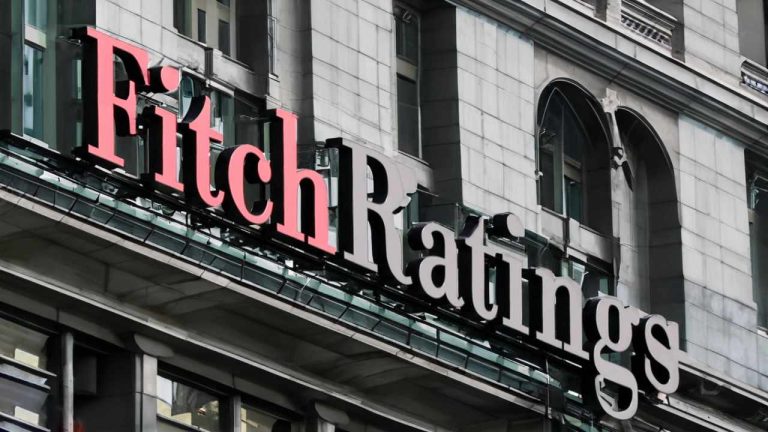Fitch Ratings Inc. has underscored the necessity for Nigeria to adopt more stringent monetary tightening measures to secure macroeconomic stability.
The credit ratings and research firm highlighted the critical step taken by the Nigerian authorities with a significant adjustment in the monetary policy rate (MPR) to 22.75%, a move aimed at curbing inflation and fostering a more market-oriented exchange rate system.
Despite these efforts, concerns remain regarding the real interest rates, which continue to be negative, and the persistent downward pressure on the exchange rate.
A statement from the agency read:
- “The recent 400bp increase, to 22.75%, in Nigeria’s monetary policy rate (MPR) marks progress in the country’s efforts to contain inflation and support a more market-determined exchange rate, though real rates remain negative and the exchange rate is still subject to downward pressure, says Fitch Ratings.
- “We highlighted low net reserves and weaknesses in the exchange-rate framework as constraints on the sovereign’s credit profile in November 2023, when we affirmed Nigeria’s rating at ‘B-’ with a Stable Outlook.”
CBN to continue monetary tightening amidst challenges
The CBN also took additional measures, including raising the cash reserve ratio for commercial banks to 45% from 32.5%, aiming to tighten monetary liquidity. The widening of the asymmetric corridor around the MPR is another step to mitigate interest rate pass-through effects.
Fitch Ratings forecasts a continuance of policy tightening by the CBN in the near term, which is deemed necessary to rein in inflation effectively. The rapid growth in credit and money supply indicates a monetary environment that is still too lax, necessitating further tightening to move towards stability.
However, the implementation of these policies is not without challenges. Political pressures and the complexities of the economic environment may act as significant hurdles to effective policy enforcement, according to Fitch.
The agency noted:
- “Fitch expects the CBN to continue tightening policy in the near term, which seems necessary to more fully control inflation as rapid credit and money-supply growth suggests a still-loose monetary context. Such a tightening will still face implementation challenges, partly due to the potential for countervailing political pressure.
- “However, without further sizeable monetary tightening, it may be difficult to achieve macroeconomic stability – real interest rates remain negative, deterring inward portfolio investment.”
Inflation Outlook
Fitch expects inflation rates to escalate further in the first half of 2024 before seeing a reduction in the latter half of the year. This projection is partly established on base effects and the anticipation that the Naira’s depreciation rate will decrease, stabilising towards the end of 2024.
The depreciation of the currency since mid-2023, coupled with a delayed monetary policy response, has heightened inflation expectations. Factors such as security concerns in northeastern Nigeria and increased transportation costs also contribute to the inflationary pressures.
It noted:
- “Fitch projects the rate of inflation to rise further in 1H24, before moderating in 2H24. This partly reflects base effects as well as our assumption that the naira’s depreciation will slow in 2024, compared with 2H23, before a stabilisation of the currency by year-end.
- “We believe the currency’s sharp depreciation since mid-2023, including the large loss of value in January, and slow monetary policy response has raised inflation expectations, with security challenges in the north-east of the country and higher transport costs also adding to price pressures. We project inflation to average 26% in 2024.”
More Insights
- The Central Bank of Nigeria (CBN) increased the monetary policy rate (MPR) by 400 basis points, elevating it to a historic high of 22.75% to combat inflation and foster economic stability. This pivotal adjustment signifies a major shift from the previous rate of 18.75%, which had been in effect since the Monetary Policy Committee’s (MPC) meeting on July 24th and 25th, 2023. The announcement, made by CBN Governor Yemi Cardoso, highlights the central bank’s proactive approach towards monetary tightening amidst challenging economic conditions.
- This unprecedented move has not only set the MPR at its highest level to date but also reflects the CBN’s determined effort to address the persistent economic pressures.
- The decision has garnered praise from the International Monetary Fund (IMF), which commended the MPC’s resolve to tighten monetary policy further by increasing the policy rate to 22.75%. Such a strategic manoeuvre aims to curb the inflation surge, which recorded a year-on-year peak of 29.9% in January 2024, and to mitigate the depreciative pressures on the naira. Since May 2022, this has accumulated to a total policy tightening of 1,025 basis points, showcasing the CBN’s commitment to restoring macroeconomic equilibrium.
- However, the steep increase in the policy rate has sparked concerns regarding the potential impact on the cost of credit for businesses already facing economic hardships. The decision to hike the MPR, while crucial for tackling inflation and supporting the national currency, poses a dilemma as it may heighten the financial burden on struggling enterprises across the country.

